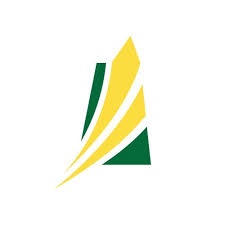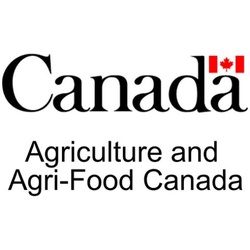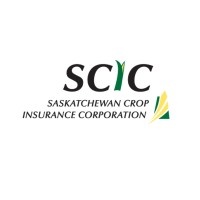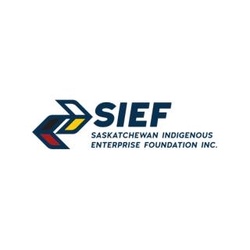
Open
Saskatchewan Lean Improvements in Manufacturing (SLIM)
Last Update: October 27, 2025
SK, Canada
Funding for Saskatchewan agri-business efficiency and expansion projects
Grant and Funding
At a glance
Funding available
Financing goals
Reduce the ecological footprint
Renovate your business/factory
Eligible Funding
- Maximum amount : 750,000 $
- Up to 50% of project cost
Timeline
- Closing date : October 31, 2027
Eligible candidates
Eligible Industries
- Agriculture, forestry, fishing and hunting
- Manufacturing
Location
- Saskatchewan
Legal structures
- For-profit business
Annual revenue
- $ 100,000 minimum revenue
Organisation size
- All organization sizes
Audience
- Indigenous Peoples
- Canadians
Overview
The Saskatchewan Lean Improvements in Manufacturing (SLIM) program provides funding of up to $750,000 per applicant to support agri-businesses in adopting best practices, new technologies, and processes aimed at improving productivity efficiency and reducing greenhouse gas emissions. Eligible activities include automation upgrades, sustainable manufacturing investments, and expanding processing capabilities by upgrading equipment.
Activities funded
- Adopting automation and advanced manufacturing technologies to boost productivity and efficiency.
- Investing in equipment and infrastructure that reduce greenhouse gas emissions in manufacturing operations.
- Expanding production capacity by adding or upgrading equipment to process new, complementary products from existing agricultural inputs.
- Conducting business analyses to identify opportunities for efficiency gains, new technology adoption, or emission reductions.
- Implementing upgrades to improve energy resource efficiency, such as building envelope improvements or adopting alternative energy sources.
Examples of admissible projects:
$ 322,500
Upgrading processing lines with energy-efficient equipment to optimize food production
$ 375,000
Integrating solar energy and automation to enhance sustainability in grain storage facilities
$ 165,000
Implementing automated irrigation systems to enhance productivity and reduce water waste
$ 352,500
Expanding production capabilities with advanced machinery for organic produce
$ 487,500
Installing a wind turbine system to power dairy farm operations and reduce emissions
$ 300,000
Developing a solar-powered greenhouse to extend growing seasons and reduce energy costs
Eligibility
- The applicant must be an agri-business, First Nation, or abattoir involved in value-added processing of Canadian agricultural products.
- The business must operate as a commercial enterprise located in Saskatchewan.
- The company must be incorporated federally or in Saskatchewan and have filed income tax in Saskatchewan within the past year.
- The facility must have been undertaking value-added processing for a minimum of two years.
- The business must demonstrate a minimum of $100,000 in gross annual revenue from value-added processing, using inputs originating from primary agricultural commodities grown or raised in Canada.
Who is eligible?
- Agri-businesses involved in value-added processing of Canadian agricultural products
- First Nations businesses engaged in value-added agricultural processing
- Abattoirs (slaughterhouses) licensed or certified in accordance with health and inspection regulations
Who is not eligible
This grant excludes certain companies and industries due to specific operational or structural characteristics that do not align with program objectives. These restrictions help target funding toward eligible and compliant entities.
- Facilities where the retail environment is larger than the processing area.
- Publicly funded facilities.
- Cannabis processing facilities without a standard processing licence from Health Canada.
- Processors of seafood or fish.
Eligible expenses
- Fees for third-party consultants conducting business analysis related to productivity or emissions reductions.
- Consultant site visits, commercial and engineering assessments, and specialized expertise directly related to improvements.
- Purchase of new or refurbished equipment and machinery to improve processing efficiency or expand production (refurbished equipment must be bought from a reputable dealer or manufacturer).
- Nominal structural adjustments and renovations required for eligible projects, including equipment rental necessary for renovations.
- Installation, delivery, shipping, and handling fees, as well as third-party construction expenses related to project implementation.
- Training costs directly related to the project provided by independent third parties (including trainer fees, books, registration fees).
- Consultation, design, engineering, and related training services provided by external specialists.
- Software embedded in eligible equipment that directly contributes to processing efficiency.
- Upgrades to improve energy resource efficiency, such as lighting and ventilation improvements, and adoption of alternative energy sources (solar, wind, combined heat and power).
- Project-specific water development works (e.g., wells, water utility connections, commercial pipelines) related to new complementary product lines.
- Installation costs for new product processing lines using the same primary agricultural commodities.
Eligible geographic areas
- Saskatchewan
How to apply
1
Check Eligibility
Ensure your agri-business meets the basic eligibility criteria such as being a commercial enterprise located in Saskatchewan and being involved in value-added processing for a minimum of two years.
2
Pre-Approval Application
- Download the SLIM Pre-Approval Application Form.
- Complete the pre-approval application with necessary business details and project information.
- Submit the completed pre-approval application form via email to agprograms@gov.sk.ca or by mail to the Ministry of Agriculture, Programs Branch, Saskatchewan Lean Improvements in Manufacturing Program, 329 – 3085 Albert Street, Regina SK S4S 0B1.
3
Conduct Business Analysis (if required)
- Upon receiving pre-approval, conduct a business analysis as outlined in the guidelines. This can be done by a third-party consultant for rebate eligibility.
- Submit the business analysis report by December 31, 2027.
4
Final Application Submission
- Complete all necessary documentation and prepare the final application including all project details, costs, and supporting documents.
- Ensure all projects and expenses align with the approved streams and include proof of costs incurred.
- Submit the final application with required documents before the project completion deadline (March 31, 2028, or as specified in approval package).
5
Claim Submission
- Submit interim or final claims to the Ministry of Agriculture’s Programs Branch once the equipment is fully installed, paid for, and operational.
- Include all invoices and proof of payments with the claim.
6
Await Approval and Funding
- Wait for the Ministry to review your application and claim. Follow up if necessary.
- Receive notification of funding approval and access the grant funds as per the approval terms.
Additional information
- Third-party business analyses are eligible for rebate even if the applicant does not proceed with the project or if the project is not ultimately approved.
- Applicants are required to review the Agri-Environmental Risk Assessment before beginning their project as a condition to access program funding.
- First Nation businesses can access specialized support (BASIS team) to help navigate the application process and eligibility.
- Funding is based on a tiered model, and each completed SLIM project cumulatively contributes to a company’s overall project size within the program’s lifetime.
Contacts
agprograms@gov.sk.ca
866-457-2377
SK, Canada
Apply to this program
Frequently Asked Questions about the Saskatchewan Lean Improvements in Manufacturing (SLIM) Program
Here are answers to the most common questions about the Saskatchewan Lean Improvements in Manufacturing (SLIM). This section explains what the program is, how much funding is available, eligibility requirements, application deadlines, and other important details to help you determine if this grant is right for your business.
What is the Saskatchewan Lean Improvements in Manufacturing (SLIM)?
How much funding can be received?
Who is eligible for the Saskatchewan Lean Improvements in Manufacturing (SLIM) program?
What expenses are eligible under Saskatchewan Lean Improvements in Manufacturing (SLIM)?
Who can I contact for more information about the Saskatchewan Lean Improvements in Manufacturing (SLIM)?
Where is the Saskatchewan Lean Improvements in Manufacturing (SLIM) available?
Is the Saskatchewan Lean Improvements in Manufacturing (SLIM) a grant, loan, or tax credit?
Apply to this program
More programs like this

Grant and FundingWage Subsidies And InternsClosed
Youth Employment and Skills Program
Agriculture and Agri-Food Canada (AAFC)Wage subsidy for agricultural organizations

Tax CreditsOpen
Saskatchewan Commercial Innovation Incentive (SCII)
Government of SaskatchewanTax incentive for commercializing innovative intellectual property in Saskatchewan

Grant and FundingClosed
AgriStability — Saskatchewan
Government of SaskatchewanInsurance to protect farming operations

Loans and Capital investmentsOpen
Commercial/Agriculture Loans
Saskatchewan Indian Equity Foundation Inc. (SIEF)Commercial and agricultural First Nations business loans in Saskatchewan

Grant and FundingOpen
Farm and Ranch Water Infrastructure Program (FRWIP) — Well Decommissioning and Special Projects Pre-Approval
Government of SaskatchewanFunding for decommissioning wells on Saskatchewan farms

Grant and FundingOpen
Regional Artificial Intelligence Initiative (RAII) in the Prairie Provinces
Prairies Economic Development Canada (PrairiesCan)Empower your company's growth and competitiveness by adopting AI through substantial funding opportunities

Researchers And FacilitiesOpen
NRC — Plant growth research facilities
National Research Council Canada (NRC)Plant growth facilities in Saskatoon

Grant and FundingClosed
Farm and Ranch Water Infrastructure Program (FRWIP) — Dugout, Pipeline and Well Rebate
Government of SaskatchewanRebate for dugout, pipeline and well projects in Saskatchewan

Grant and FundingClosed
Agriculture Development Fund
Government of SaskatchewanMoney for agricultural industry research in Saskatchewan

Grant and FundingOpen
Agriculture Awareness Initiative Program (AAIP)
Government of SaskatchewanMoney to build awareness and trust in Saskatchewan agriculture
Sign up to our platform to access the Saskatchewan Lean Improvements in Manufacturing (SLIM) information sheet for free
Get access to 4,000+ programs, practical guides, personalized alerts, and an AI assistant to support your grant applications.